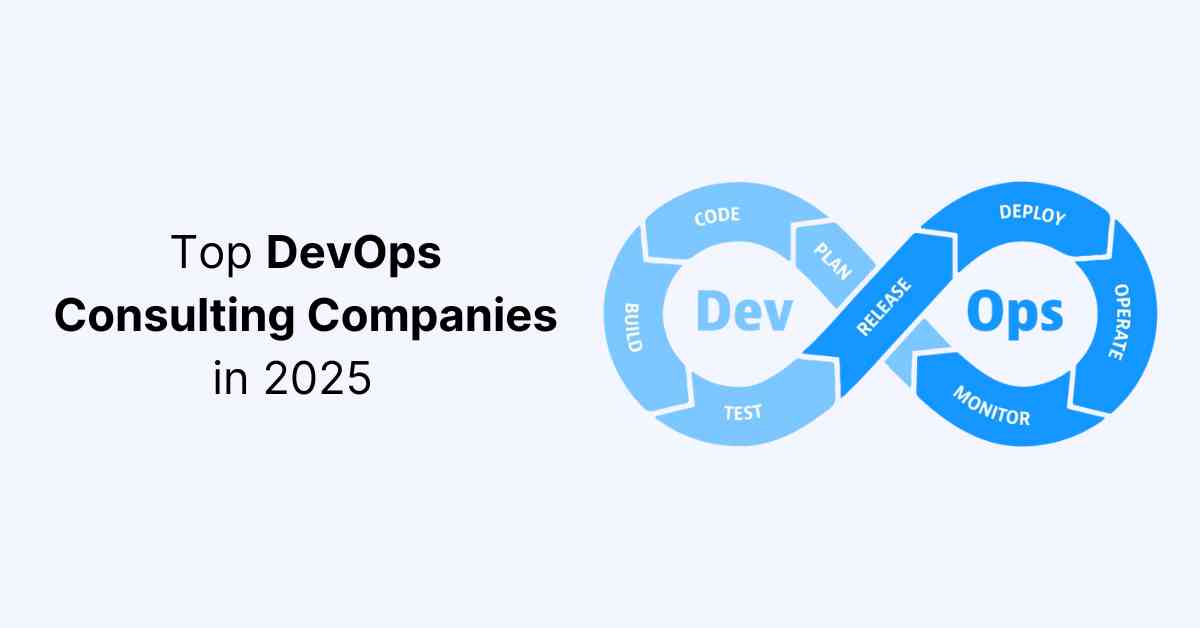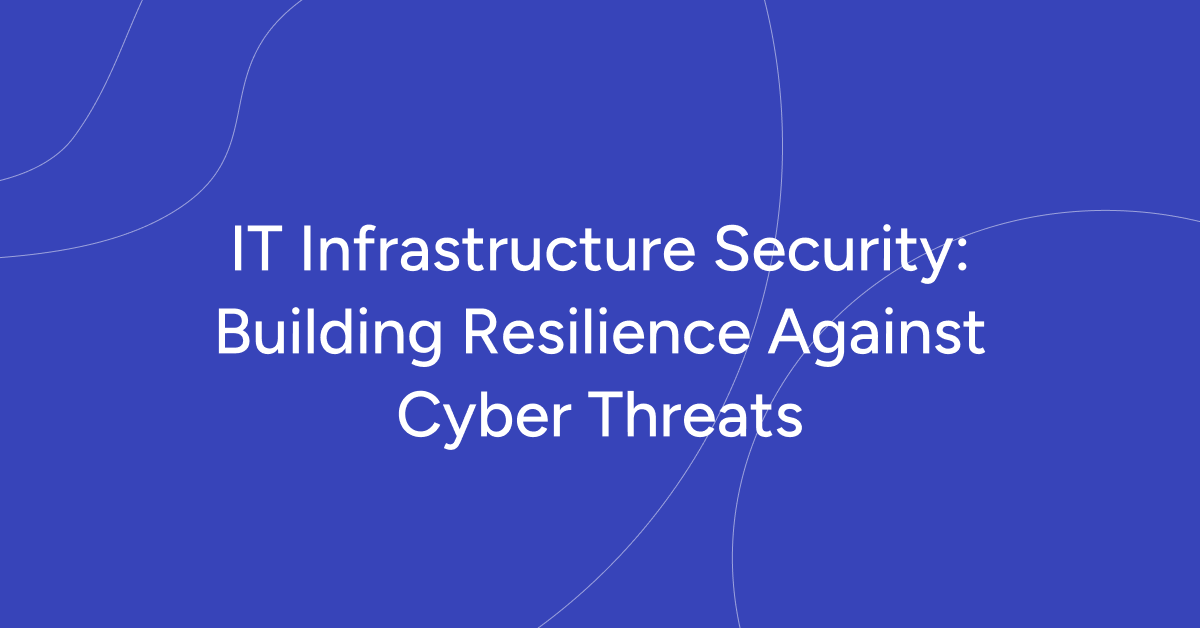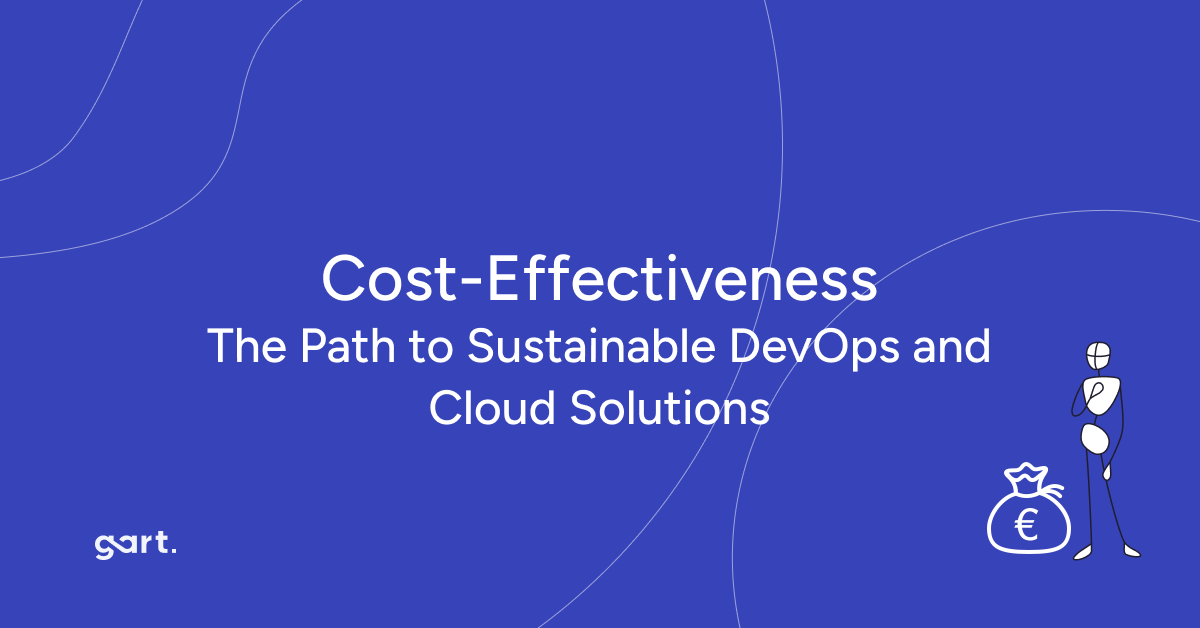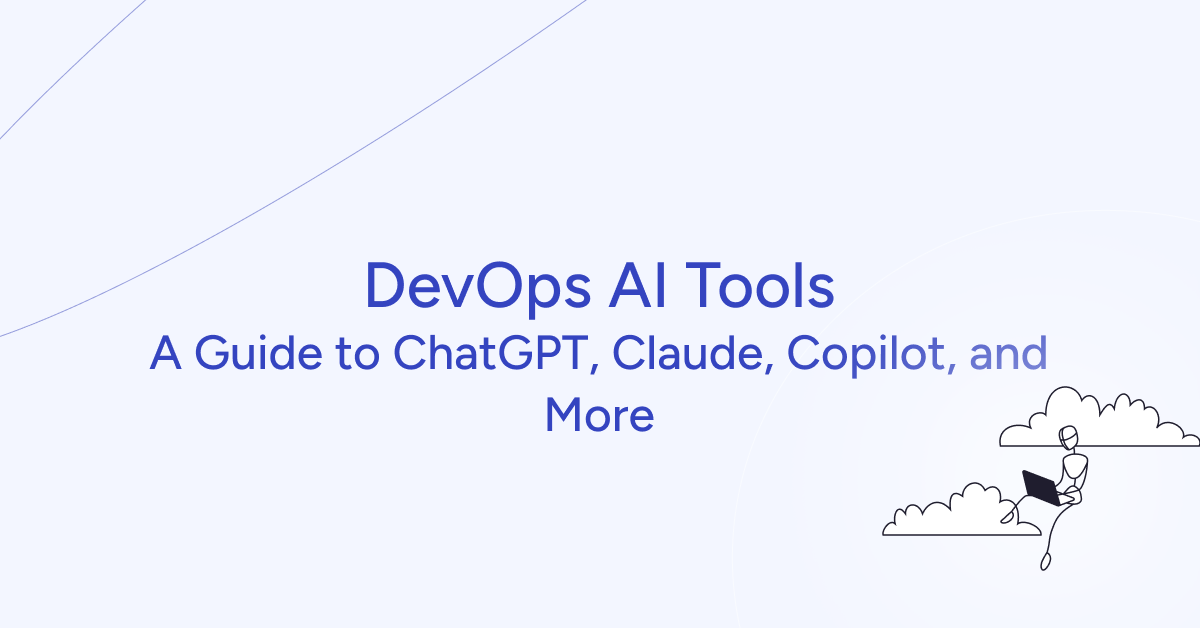Why DevOps Consulting Matters in 2026
Businesses in 2026 no longer view DevOps as just a technical framework — it’s a strategic enabler of growth, speed, and security. According to market research, the global DevOps market will surpass $66 billion by 2033, growing at a CAGR of nearly 19% (Market.us)
This rapid expansion is fueled by rising demand for:
- Cloud transformation and hybrid IT models
- Faster, automated software delivery (CI/CD pipelines)
- Resilient infrastructure with observability and monitoring
- Built-in security (DevSecOps) and compliance
However, implementing DevOps isn’t easy. It requires expertise in cloud platforms, infrastructure as code, automation, and agile culture. That’s why DevOps consulting companies play a vital role. These partners help businesses assess their IT environments, identify bottlenecks, and implement scalable DevOps strategies that deliver real business outcomes.
In this article, we’ll explore the Top DevOps Consulting Companies in 2026.
What Makes the Best DevOps Consulting Companies in 2026 & How to Select One?
Before diving into the list of top providers, let’s look at what separates leading DevOps service companies from the rest.
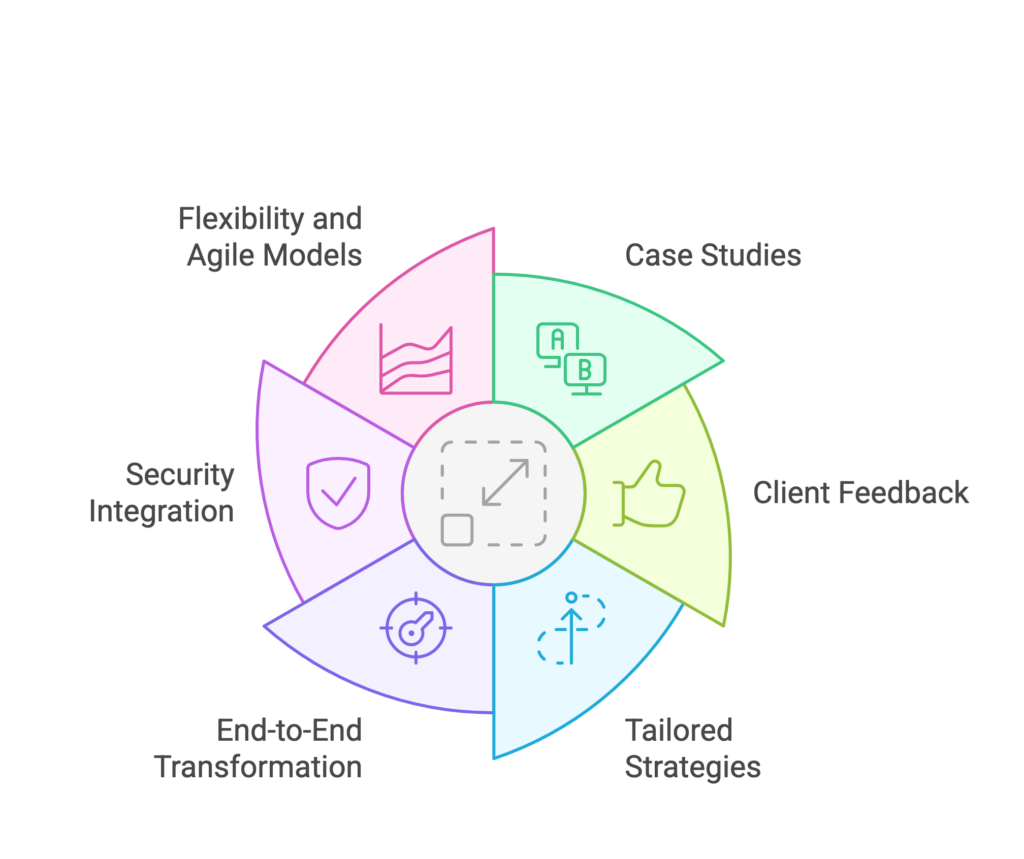
1. Case Studies
Top providers don’t just talk about DevOps — they prove their value & cases of real results. Whether it’s reducing deployment cycles by 80% or cutting cloud costs by 30%, case studies show measurable ROI.
For example, Gartner emphasizes that businesses choosing vendors with documented case studies and verified reviews see faster and more successful DevOps adoption.
Only companies with a demonstrable portfolio of successful DevOps engagements were considered in this list.
2. Client Feedback
Reviews and ratings from verified clients helped verify service quality and customer satisfaction.
2. Tailored DevOps Strategies
Each industry has unique needs. A healthcare provider must prioritize compliance and data security, while a SaaS company values uptime and rapid releases. The best consulting companies deliver customized roadmaps aligned with business goals — not just tool implementation.
3. End-to-End DevOps Transformation
Leading firms begin with IT audits, then transition into cloud migration, CI/CD pipeline creation, automation, observability, and ongoing optimization. This holistic approach ensures long-term success rather than short-lived improvements.
4. Security-First (DevSecOps) Integration
With rising cyber threats, the best DevOps partners integrate security from day one, embedding compliance and automated threat detection into pipelines.
5. Flexibility and Agile Engagement Models
From startups to global enterprises, businesses need DevOps partners that can scale up or down quickly. Boutique providers excel in this area, offering fast ramp-up delivery without the bureaucracy of larger firms.
Top DevOps Consulting Companies in 2026
While Gart Solutions takes the lead as a boutique DevOps powerhouse, the global DevOps ecosystem features several other strong players. Each of these companies brings unique expertise, regional strength, and industry specialization. Let’s explore the top DevOps service providers in 2026 — all of which made our list based on technical excellence, case studies, and verified client success.
1. Gart Solutions – Boutique-Style Firm with Measurable ROI

Gart Solutions is a top-tier DevOps partner for 2026. Its boutique model, IT audit-first approach, and measurable outcomes set it apart.
By reducing costs up to 81%, ensuring 100% uptime, and enabling faster releases, Gart has proven it can deliver results that many larger firms struggle to match.
Gart Solutions, a DevOps-first consulting company, is recognized for boutique-style flexibility, measurable ROI, and award-winning delivery models.
Their philosophy is simple: “DevOps must deliver business outcomes, not just automation.”
Core DevOps Offerings of Gart Solutions
Gart Solutions provides end-to-end DevOps-as-a-Service (DaaS), including:
- IT Audit & Infrastructure Assessment – uncovering inefficiencies, risks, and gaps.
- CI/CD Pipeline Design – automated deployments with Jenkins, GitLab, or GitHub Actions.
- Kubernetes & GitOps – container orchestration for scalability.
- Terraform-based Infrastructure as Code (IaC) – efficient, repeatable infrastructure.
- Cloud Migration & Cost Optimization – helping enterprises save big on AWS, Azure, or GCP.
- DevSecOps & Compliance – embedding security into every delivery stage.
- SRE & Observability – monitoring and incident management for uptime and reliability.
This full-cycle DevOps service model makes Gart a one-stop partner for businesses aiming for resilient, scalable, and cost-efficient IT operations.
Business Impact: Real Results from Gart Solutions
Gart doesn’t just implement DevOps tools — it engineers measurable outcomes.
Some of their notable client impacts include:
- 81% cost reduction for a manufacturing AI vision system
- $19.9K saved in monthly budget for a global music platform
- 100% uptime during high-load health sector deployments
- 85% cloud storage optimization with Azure Spot VM strategy.
2. N-iX – Enterprise-Grade DevOps Transformation

N-iX, a multinational technology partner, has become a strong name in enterprise DevOps adoption. With more than 50 large-scale implementations, N-iX focuses on multi-cloud and hybrid strategies for industries like telecom, logistics, and fintech.
Key Strengths:
- End-to-end CI/CD design and implementation
- Cloud migration with multi-cloud flexibility
- Strategic support for enterprise agility
Client Impact:
- 35% faster delivery cycles for a telecom client
- 28% cloud cost savings via rebalancing strategies
While N-iX is an excellent fit for enterprises, it lacks the lean execution speed and opportunity to fit to client’s budget.
3. Ciklum – Agile DevOps for Digital Transformation

Ciklum focuses on digital-first businesses across retail, hospitality, and finance. With 200+ DevOps engineers, it is known for blending DevOps with agile product development, ensuring high availability and reliability.
Key Strengths:
- CI/CD architecture design
- Infrastructure monitoring and performance optimization
- Seamless integration with agile teams
Client Impact:
- Deployment time reduced from days to minutes
- 22% infrastructure savings through containerization
Ciklum is a solid option for companies with agile software cycles, but when it comes to cost-optimization-first approaches, it’s not its strong side.
4. Svitla Systems

Svitla Systems operates across Ukraine, LATAM, and the US, serving healthcare and financial services clients. Known for containerization and CI/CD build outs. Svitla provides dependable mid-market DevOps consulting.
Key Strengths:
- DevOps and custom software co-delivery
- Full observability and monitoring solutions
- Global delivery centers
Client Impact:
- 60% MTTR reduction for a healthcare SaaS firm
- Zero downtime in complex CI/CD deployments
Svitla is strong in midmarket transformations but often doesn’t match client’s budget.
5. Binbash – IaC and Open-Source DevOps Frameworks

Latin American firm Binbash is deeply specialized in Infrastructure as Code (IaC) and AWS-based DevOps. They’ve built open-source IaC frameworks (Binbash Leverage™) that accelerate DevOps adoption.
Key Strengths:
- Modular IaC stacks (Terraform-based)
- Cloud-native pipelines on AWS
- Automated compliance for fintech
Client Impact:
- Fully modular AWS infrastructure deployed in days
- 70% faster provisioning with reusable frameworks.
6. ELEKS – Secure Enterprise-Scale DevOps

ELEKS operates across Europe, North America, and Asia, focusing on finance, retail, and transportation. They specialize in Infrastructure as a Service (IaaS) and Database as a Service (DaaS), making them ideal for large enterprises modernizing legacy systems.
Key Strengths:
- IaaS, PaaS, and DaaS focus
- Integration with BI and analytics platforms
- Strong compliance frameworks
Client Impact:
- Real-time analytics enabled for a financial client
- Automated provisioning strengthened compliance
ELEKS excels in enterprise-grade DevOps and lacks in flexible boutique delivery for companies that want to move quickly.
7. Infopulse – Structured DevOps for Telecom and Automotive

Infopulse is a trusted partner in telecom and automotive industries, providing structured DevOps aligned with ITIL processes.
Key Strengths:
- CI/CD workflows for high-availability systems
- Proactive observability and alerting
- Strong industry-specific expertise
Client Impact:
- 24/7 SaaS systems with automated recovery planning
- 40% pipeline accuracy improvement
Infopulse is reliable for structured enterprises but lacks the dynamic cost-cutting .
8. Symphony Solutions

Symphony Solutions is widely known for merging DevOps with user-focused digital services, especially in gaming, education, and healthcare. They bring a creative edge by combining Agile, UI/UX, and DevOps into their delivery model.
Key Strengths:
- Integration of Agile and DevOps with design-first methodology
- Mobile DevOps and high-user-volume optimization
- Performance-driven DevOps for apps and gaming
Client Impact:
- 75% reduction in mobile deployment time for an e-learning platform
- Unified cross-platform monitoring for gaming applications
Symphony Solutions is a great fit for companies that want DevOps tightly integrated with product innovation.
9. Sigma Software – Modernization and CI/CD at Scale

Sigma Software employs over 2,000 professionals worldwide and has deep DevOps expertise in legacy modernization, CI/CD, and cloud adoption. Their scalable model caters to fast-growth tech firms and midmarket enterprises.
Key Strengths:
- Legacy-to-microservices modernization
- CI/CD integration for scaling businesses
- Dedicated DevOps security and QA teams
Client Impact:
- Transformed a legacy system into microservices within 8 months
- Reduced post-deployment bugs by 60% via automation
Sigma Software is well-suited for large-scale modernization, but its enterprise focus may lack the boutique-style agility.
10. Transition Technologies PSC

Based in Poland, Transition Technologies PSC specializes in manufacturing and automotive DevOps solutions. Their expertise lies in OT/IT integration, CI/CD pipelines, and hybrid environments.
Key Strengths:
- OT/IT convergence for manufacturing automation
- Secure, hybrid cloud DevOps adoption
- Data-driven DevOps QA for IoT
Client Impact:
- Improved software release frequency by 5× for factory automation
- Embedded DevOps QA in production for IoT systems
Transition Technologies PSC is perfect for industrial clients.
11. Euvic

Euvic focuses on small-to-mid-sized businesses (SMBs), delivering cost-effective automation and CI/CD services across Europe.
Key Strengths:
- Hands-on CI/CD setups using Jenkins, GitLab, Docker
- Nearshore delivery model in the EU
- Flexible engagement for startups and MVPs
Client Impact:
- Helped a SaaS startup scale from single-server to AWS cluster
- Reduced regression issues by 80% with automated QA
12. Dysnix – DevOps for Blockchain, AI, and Fintech

Dysnix is an innovation-driven DevOps partner specializing in blockchain, AI, and fintech startups. They excel in Kubernetes orchestration, serverless computing, and decentralized architectures.
Key Strengths:
- Kubernetes and container orchestration for crypto exchanges
- AI-powered deployment automation
- Extreme focus on security and low-latency performance
Client Impact:
- Optimized a crypto wallet infrastructure to handle 10× transaction spikes
- Reduced rollback times to seconds with AI triggers
Dysnix is a great choice for cutting-edge startups.
13. IT Outpost

IT Outpost is a remote-native DevOps provider that supports startups and mid-sized companies with cloud cost optimization and GitOps-driven infrastructure.
Key Strengths:
- GitOps for scalable infrastructure management
- Serverless computing frameworks
- Rapid onboarding and deployment
Client Impact:
- Cut cloud bills by 40% for an e-commerce platform
- Built blue/green CI/CD pipelines in less than 3 weeks
IT Outpost delivers speed and efficiency but lacks the full-stack DevSecOps and monitoring depth that companies like Gart Solutions provide.
14. CiGen

CiGen uniquely combines DevOps with Robotic Process Automation (RPA), making it valuable for industries like finance, logistics, and insurance where workflow automation is critical.
Key Strengths:
- DevOps for automation and RPA pipelines
- CI/CD setups tailored for bots
- Compliance and change management
Client Impact:
- Reduced downtime and handoffs by 75%
- Enabled continuous testing of bots in production
CiGen is strong for automation-first enterprises, but businesses requiring cloud-native cost optimization.
15. OpsWorks

OpsWorks emphasizes 24/7 managed DevOps support, scalable architecture, and infrastructure audits. Their SLA-driven model ensures guaranteed uptime and reliability.
Key Strengths:
- SLA-backed managed DevOps services
- Cloud-native CI/CD and backup planning
- Infrastructure tuning and audits
Client Impact:
- Boosted e-commerce platform stability to 99.99% uptime
- Delivered Kubernetes rollback with zero user impact
OpsWorks is excellent for businesses that want SLA-backed support, but its service model is less flexible.
DevOps Trends in 2026, Shaping the Industry
The DevOps ecosystem in 2026 continues to evolve rapidly. Businesses looking to stay ahead must align with emerging trends that reshape IT and product delivery.
1. Cloud-Native and Hybrid DevOps
With over 65% of workloads now running on public cloud, companies are adopting cloud-native architectures. However, hybrid models remain essential for enterprises that must maintain certain workloads on-premises.
2. AI-Powered Automation
AI is becoming the brain of modern DevOps pipelines. From predictive monitoring to AI-driven rollback automation, companies are using machine learning to detect issues before they escalate. Consulting firms now integrate AIOps into DevOps pipelines to achieve proactive resilience.
3. Security-First DevOps (DevSecOps)
With cyberattacks on the rise, businesses can no longer bolt on security after deployments. DevSecOps is now the standard, embedding compliance, security checks, and automated vulnerability scans into CI/CD workflows.
4. Platform Engineering & Self-Service DevOps
To reduce complexity, many organizations are building internal DevOps platforms where teams can provision environments, deploy services, and monitor applications in a self-service model. This trend is driving adoption of platform engineering as a complement to DevOps.
Conclusion
The top DevOps consulting companies in 2026 share one mission: helping businesses accelerate digital transformation through automation, cloud adoption, and cultural change. From global giants like N-iX or Sigma Software to niche players like Gart Solutions — the industry offers a wide range of options for every business need.
See how we can help to overcome your challenges

